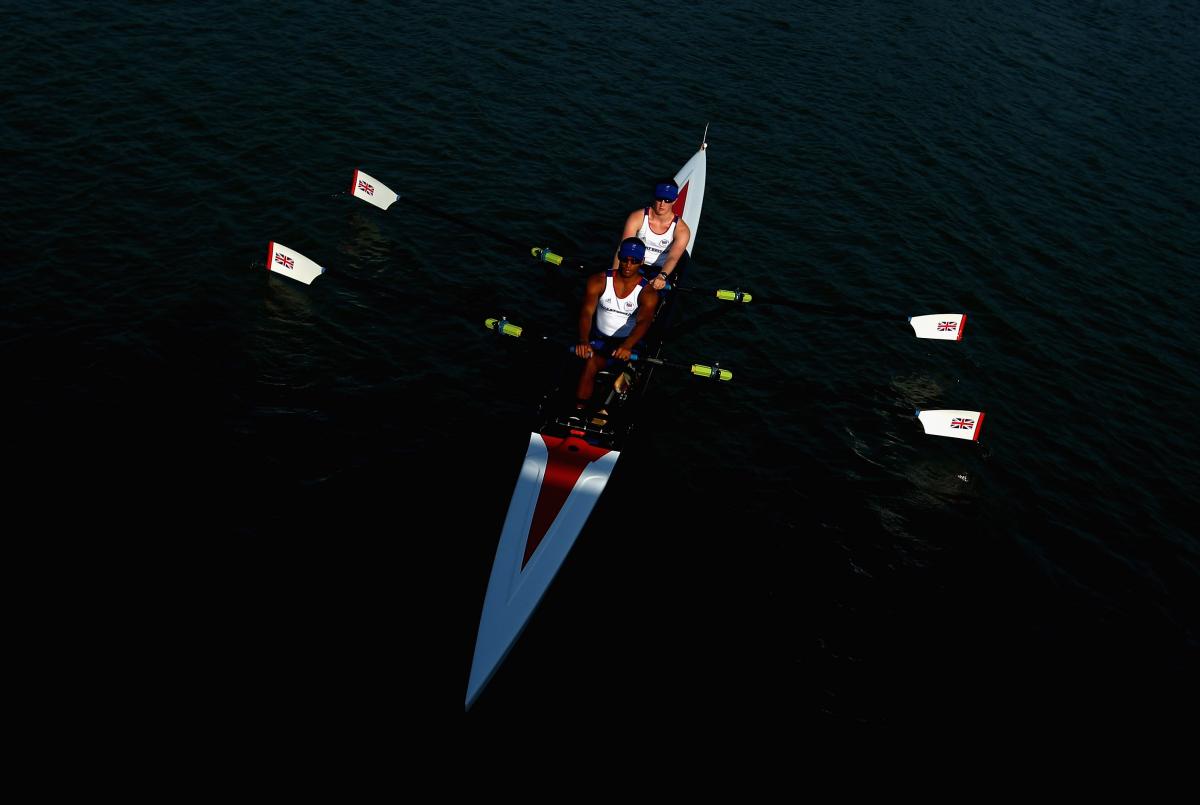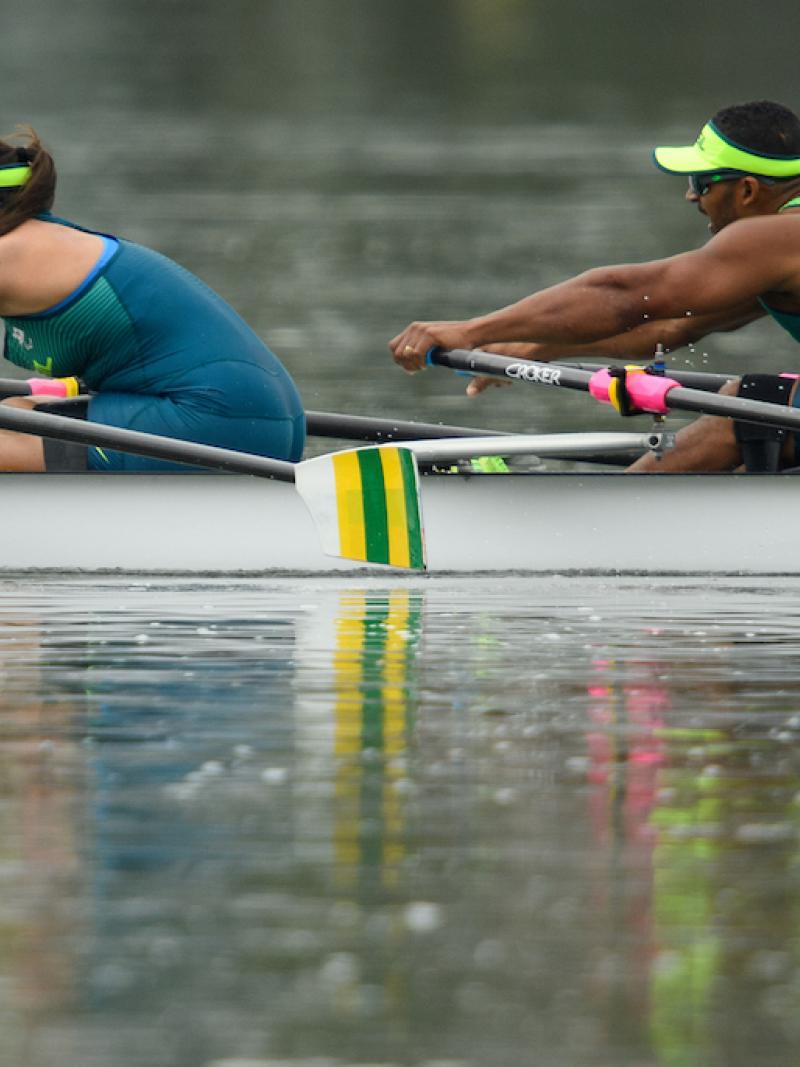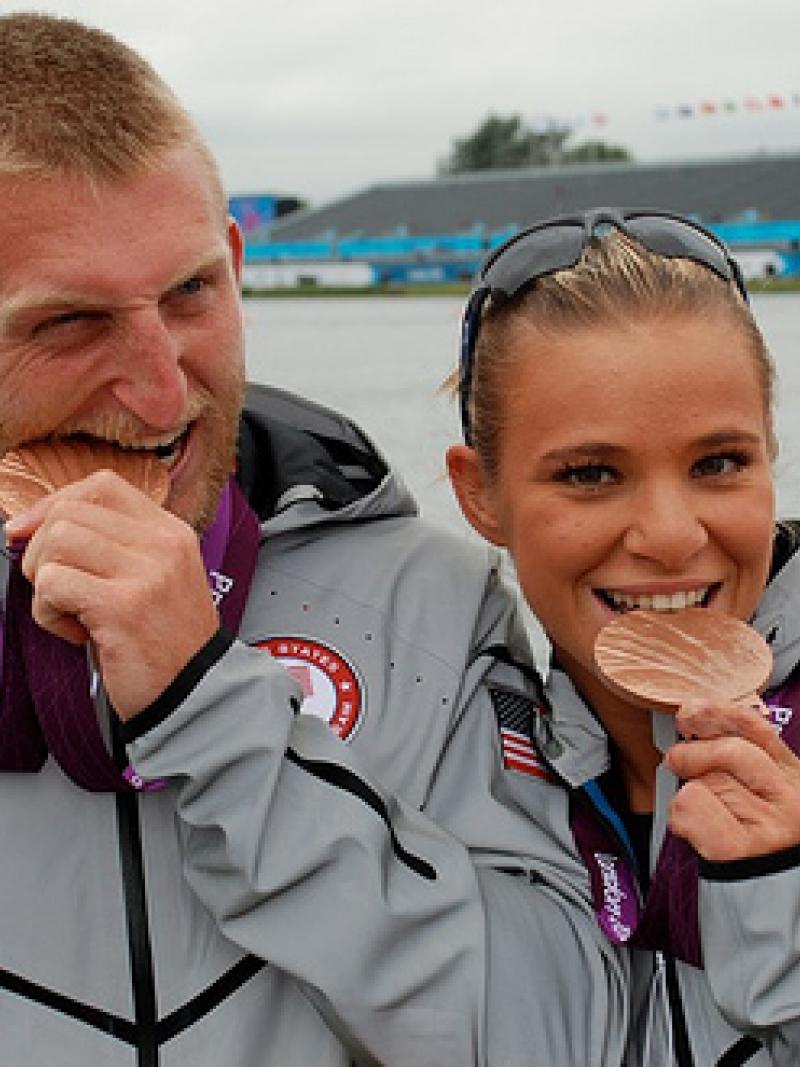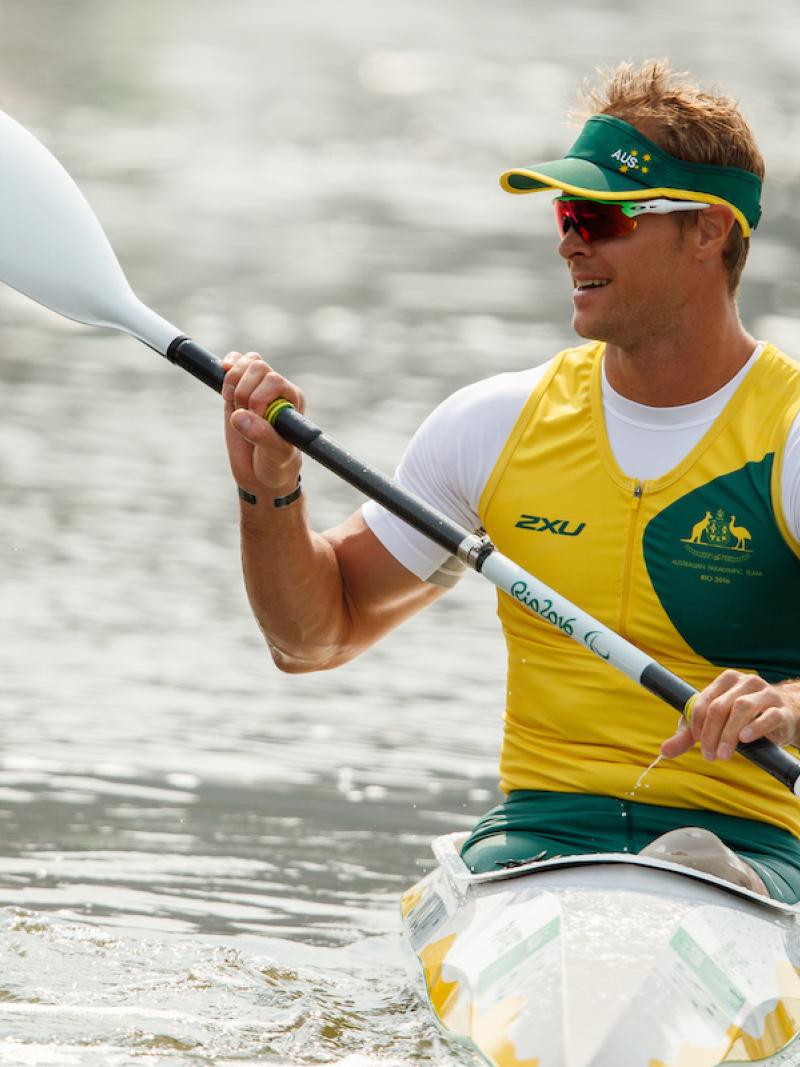Growing Para rowing in the Americas
An international Para rowing training camp was held in Sarasota-Bradenton, USA, which was the first of its kind. 23 Mar 2017
Rowing was introduced for the first time at the Beijing 2008 Paralympic Games.
“We are hoping that this will help with our goal of getting Para rowing into the Pan American / Parapan American Games.”
Rowers and coaches from seven nations came together to train, share, learn and compete at the state of the art, fully accessible rowing facilities and site of the upcoming 2017 World Rowing Championships.
Held in early March, the camp was a coordinated effort by the World Rowing Federation (FISA), USRowing and the International Paralympic Committee’s Agitos Foundation. Following the model of the successful annual international Para rowing camp in Gavirate, Italy, this was also one of the first Agitos Foundation-supported events specifically targeting the sport in North and South America.
“Having the camp here in the Americas was amazing,” says Rebecca Orr of FISA’s Para rowing Commission who was onsite throughout the camp. “We are hoping that this will help with our goal of getting Para rowing into the Pan American / Parapan American Games.”
“Para rowing in the Americas has not been that developed in the past,” Orr continued. “There have been Canada, the United States and Brazil with larger programmes and a few in Mexico, but interest is increasing in many other nations.”
For many of the participants at the camp, this was the first time they had been in a rowing boat. The combined format was designed so that elite Para rowers from more established teams took to the water alongside and even in the same boats as those new to the sport. This created opportunities for rapid improvement and encouragement in the development of the sport.
“These camps are really about sharing knowledge and learning from one another,” said Ellen Minzner, a camp organiser who is also Director of Outreach at Community Rowing Inc. in Boston, USA and coach of USRowing’s Paralympic mixed coxed four, the Rio 2016 Paralympic silver medallists. “I could really see the value in these types of camps when I went last year [to Gavirate] as a mentor coach.
“With Para rowers you don’t have a big squad of eights, fours and quads training around you. So without these camps, developing rowers and coaches are more on their own than they need to be. From the feel of the camp, I think it was a great success.”
Along with multiple daily sessions on the water, camp rowers and coaches participated in seminars with some world class presenters including Connie Draper, who presented analyses of biomechanical data collected throughout the camp.
Another of the seminars was co-presented by Rob Jones (USA), bronze medallist in the mixed double sculls at the London 2012 Paralympics, and Great Britain’s Pamela Relph, who has enjoyed an undefeated international career in the mixed coxed four including gold at both the London 2012 and Rio 2016 Paralympics.
Another success story of the camp was the multisport environment that led organiser and USRowing Director of Para rowing Tom Darling to create at the Sarasota camp.
“I met the directors of USA Triathlon and Para Cycling and Nordic and thought it would be good to combine them for a camp,” Darling said.
The fully accessible nature of the facilities at Nathan Benderson Park made hosting such an integrated event possible. Darling said he sees it as a good sign of things to come not just for Para rowing, but for all Para sports.
After a week of training, sharing and learning, the camp finished off with a 2000m regatta – the new standard racing distance for Para rowers.

 Facebook
Facebook
 Instagram
Instagram
 Twitter
Twitter
 Youtube
Youtube
 TikTok
TikTok
 Newsletter Subscribe
Newsletter Subscribe



